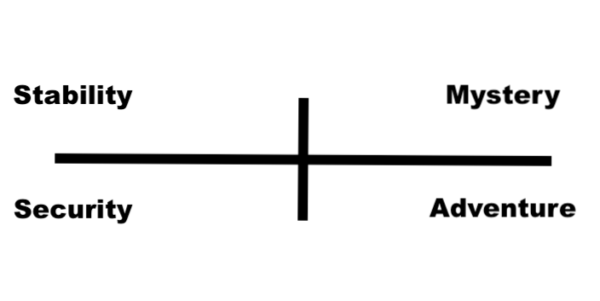Ready to have an in-depth (scientific based) discussion on cheating?
Today we’re going to attempt to answer one specific question, do cheaters miss their ex.
My argument is a simple one, most cheaters won’t tend to miss their exes until that ex has moved on completely from them.
And I have the research to back it up.
Here’s the whole scope of what we’ll be talking about today.
- The psychology of cheating
- How likely a cheater is to feel regret
- Pinning down exactly when a cheater is most likely to miss their ex
Let’s dive in to it.

What Are Your Chances of Getting Your Ex Boyfriend Back?
Take the quizThe Psychology Of Cheating
When it comes to cheating there is one predominant authority that I trust over all else, Esther Perel,
She’s a Belgian/American psychotherapist who studies relationships for a living. She first came to prominince for her work on studying couples who cheated. I first learned about her because I watched this Ted Talk:
She has a very interesting argument when it comes to cheating.
According to this piece that was done about her work by The Atlantic,
The common belief is that people cheat because they are unhappy in their relationships. However, Perel argues that even individuals in happy marriages can be unfaithful.
So, essentially I read this as Perel arguing that cheating can infect even the supposedly “safe situations.”
And it does seem like her assertion is correct.
When looking up research to see how common cheating was in general I was shocked to find that 46% of people in a monogamous relationship say they’ve had affairs.
But why?
What is the real reason people cheat?
Examining The Real Reason Individuals Cheat
If you take that piece that the Atlantic did on Esther Perel, she was essentially arguing that infidelity is not so much about the person being cheated on, but more about the cheater’s sense of searching for a new self.
She goes on to explain that affairs can be an expression of longing and loss, a desire for novelty, or a yearning for an emotional connection that may be lacking in the primary relationship. It’s not always about seeking another person, but rather an altered state of being.
When I read this, the first thing that came to mind was what I often discuss post-breakup with my clients: this idea of a stability and mystery scale.
Humans are paradoxical in that we need two competing philosophies in our relationships.
We crave stability, but at the same time, we desire adventure, excitement, spontaneity, and mystery.
If you live at either extreme in your relationship, it can become stale or boring.
So, to put this in my own terms or to give my perspective on the real reason people cheat, I think it has a lot to do with this scale of potentially growing complacent in their relationship and seeking elements they’re missing.

What Are Your Chances of Getting Your Ex Boyfriend Back?
Take the quizSo if they’re in a ‘stable’ relationship on the stability scale, they’re looking for adventure, excitement, and mystery, and these aspects are attractive to them.
I believe it all comes down to a lack of communication.
They’re not communicating with their partner, and I’m going to discuss why I think avoidants are often guilty of this. There’s actually some research that supports this.
They’re not talking to their partner to explain what they’re lacking in the relationship.
As a result, they start looking to outside sources to fulfill that need.
This leads us to the discussion we need to have about regret.
Do Cheaters Regret Cheating?
The question is whether cheaters miss their ex at any point.
Usually, to miss your ex, you need to feel regret about what you did.
However, there’s some conflicting research out there about whether cheaters regret their decision to break up at all.
Dylan Seltzerman, an associate professor at Johns Hopkins University, conducted some research on relationships and attraction.
He found that ratings for satisfaction with affairs were high for both sexual and emotional satisfaction, and feelings of regret were low.
This research suggests that people often don’t feel regret for their decision to cheat, which may be alarming to hear, but I agree with it considering our stability and mystery scale.
The stability and mystery scale isn’t about the partner they’re with.
As Esther Perel suggests, it’s about seeking an altered state of being.
People want more out of their relationship but don’t want to lose their current one. So, it makes sense that they’re not necessarily regretting the actual act of cheating.
When people, or at least cheaters, talk about regret, they’re not necessarily regretting the act of cheating or how it made them feel, which is difficult to hear. But what I do think they regret is how it made you feel.
Often, at least in my experience dealing with clients who have cheated on their ex, they express regret.
The first aspect they mention in regards to regret isn’t so much about the actual act. It’s more about how it affected the people they cheated on. I watched a documentary about Arnold Schwarzenegger on Netflix, and I use him as a good example because of his well-known affair.
He had a child with his mistress. It was intriguing to hear him discuss it.
He clearly didn’t enjoy talking about it and showed significant shame.
He acknowledged his mistake.
But what struck me was that his primary regret wasn’t the affair itself. Even though I’m sure he regrets part of it, I think his main remorse was about how it affected his children and his ex-wife.
That is the challenging aspect.

What Are Your Chances of Getting Your Ex Boyfriend Back?
Take the quizThat’s how I believe regret functions for cheaters.
It’s more about the people impacted by the cheating than the thrill gained from the act of cheating.
Pinpointing Exactly When A Cheater Will Likely Miss Their Ex
I found this a challenging area when researching the topic.
Most psychological findings suggest that people who cheat are enjoying their infidelity.
In fact, they don’t really regret cheating on the person. They may regret how it made the person feel, but that’s it.
So, I began to wonder, do they even miss their exes at all?
My gut tells me they do but I’m having trouble finding research to back it up… Well, at least until I learned about the link between attachment styles and cheating.
Stop me if you’ve heard this before.
Many of our clients’ exes exhibit avoidant attachment styles.
This is particularly significant as we know that individuals with avoidant attachment styles often miss their ex under certain conditions.
With my curiosity piqued, I started researching which attachment styles are most prone to infidelity.
The findings were striking.
An article from Science Daily dissected research on why people cheat.
One of the studies, conducted on 270 adults with an average age of 27, found that about 54% had considered cheating, and 39% had actually cheated. The correlation was clear: those with an avoidant attachment style are more likely to cheat.
Infidelity could be an emotional regulatory strategy used by people with an avoidant attachment style. The act of cheating helps them dodge commitment, distance themselves from a partner, and maintain their sense of freedom and security.
Anyone familiar with the core fears of individuals with avoidant attachment styles knows they highly value independence.
Anything threatening this independence can trigger self-sabotaging behaviors in the relationship.
This fits well with our discussion about the stability and mystery scale.
For an avoidant, however, it’s less about a lack of mystery or stability and more about a lack of independence.
For them, a stable environment is one where they maintain their independence. If they’re with someone eager to deepen the relationship, it threatens their independence, prompting self-sabotage and the potential for infidelity.
But we still haven’t answered when they are likely to miss you.
Well, what’s interesting about avoidant attachment styles, as we’ve learned over the years, is that given space, they often start to miss their ex. Not always, but generally, if you were in a long-term relationship and give them space, they begin to miss you.
I literally did a whole video about this,

What Are Your Chances of Getting Your Ex Boyfriend Back?
Take the quizThe reason is straightforward:
Those with avoidant attachment styles don’t typically start missing their ex or regretting the end of the relationship until their ex has moved on.
This might seem counterintuitive, as one might think that sending a certain text or behaving in a particular way would do the trick.
However, it’s quite simple. If the avoidant ex believes you’ve completely moved on, that’s when they’re most likely to miss you and reminisce about the times you shared.
This is reflected in many of our success stories, which often involve getting back with an ex who has an avoidant attachment style.
It’s usually not until our clients implement a period of no contact, start dating someone else, or begin posting on social media suggesting they’ve moved on that their ex becomes more open to conversation.
So, when is a cheater most likely to miss their ex?
When the ex has moved on to someone else or has gotten over them.
This provides a sense of safety that allows for nostalgic feelings about the relationship to surface.

